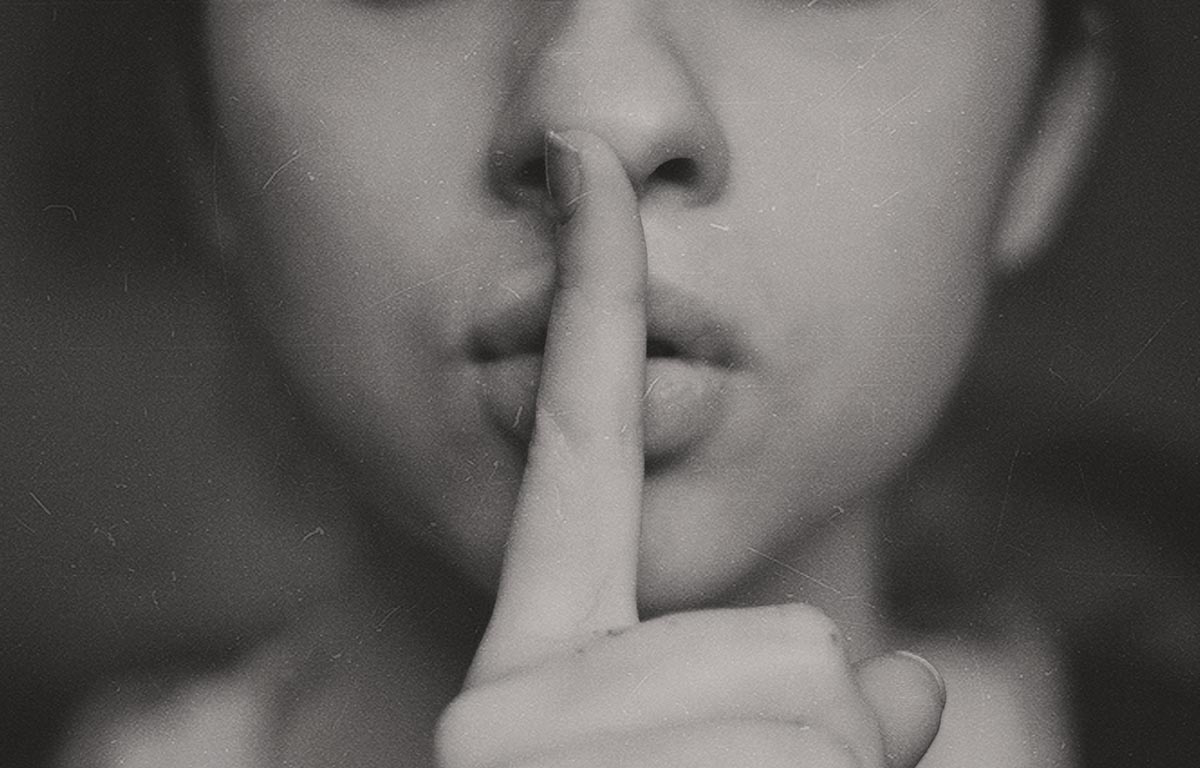It’s a question often asked: What attracts women to men? Are some guys just born naturally attractive to women, or is it how a man lives his life that makes him attractive?
Today I’m going to bust THE big myth about what attracts women to men, and give you the straight up honest truth.
You’ll learn the underlying psychology of why women are attracted to certain things men do, and I’ll be showing you how you can use this knowledge to understand why there are so many popular misconceptions about attraction.
Why Is Attraction Such a Complex Issue These Days?
The problem is this:
1) Attraction is a genetic thing – women are programmed to respond to certain qualities like height, dominance, confidence, and so on
Historically (we’re talking hundreds of thousands of years) the men who possessed these qualities produced offspring with a higher chance of survival than men who didn’t, and as a result these men were responsible for a greater percentage of surviving children. The increased success rate was probably something marginal, but over hundreds of thousands of years, even a marginal advantage becomes extremely noticeable and widespread throughout a species.
2) This genetic programming is based on what works in an environment that is VERY different from the environment we live in now
We no longer have to run from predators, hunt and forage for food, and engage in conflict with neighbouring tribes. Things that were typically a disadvantage aren’t such a big deal anymore – people who would’ve been left for dead can now be productive, successful members of society who can provide for a family.
Although you don’t really need to be your classic alpha male type to survive and do well these days, the ancient attraction programming remains intact and pushes women towards guys who behave this way. Don’t go try to be an alpha male though – what you think it means and what it actually is are likely two very different things.
It might seem counter-intuitive, but being attractive is something you can learn to do by paying attention to your beliefs, behaviours, body language, and putting at least a bit of effort into being decent looking.
The modern attractive man isn’t some super aggressive juice head whose life motto is “never back down”. He’s just a normal guy who’s comfortable with who he is: confident, well put together, and willing to put the work in to actually go out and meet people.
The Big Attraction Myth: You Need Things Like Height, Money, and Social Status to Be Attractive to Women
I know I just said women are genetically predisposed to want these things, and it might seem like I’m contradicting myself here. Especially since in our own personal experience we often see the most attractive women with tall, rich, successful men. Actors, business owners, executives, guys with nice houses and fast cars.
The reason why it SEEMS like height, looks, social status, and money attract women is a common cognitive error: a misunderstanding of correlation and causality. Causality means one thing causes another, like being rich causing women to like you. Correlation means one thing is linked to another thing, like rich men being more likely to have attractive women with them, but not necessarily because of their wealth.
Now, there are of course some women who will only date men above a certain height, income level, and so on, but the majority of women aren’t like this.
So why would we believe things like money, social status, and so on are correlates rather than causes?
The reason is rooted in the way women identify these traits in men. If women are attracted to men with status and wealth, an effective evolutionary strategy for men would be to fake these traits. Producing offspring with a faker could be disastrous for the woman; a faker likely does not have adequate resources and social influence to provide for her offspring.
To counter this, women must be able to differentiate between the men who genuinely have wealth and social status, and those who are faking. One way to do this is by developing a heightened sense of social perception and recognizing what successful man behaviour looks like compared to the behaviour of an imitator. The behaviours become the primary source of attraction.
Women are not attracted directly to wealth and status, but to the behaviours indicating a man genuinely has wealth and status.
This provides the explanation for why it seems like wealth, status, and height matter so much. If you were suddenly made better looking, a few inches taller, and inherited a billion dollars, would you behave the same way you do now? Of course not! You’d instantly be more confident, more relaxed, happier, less stressed out, and so on.
Women pick up on these behaviours, and it’s these behaviour patterns that are at the core of attraction, not the wealth and status itself.
Can a Lot of Confidence Overcome Deficiencies in Height/Wealth/Looks/etc.?
It can definitely increase your chances, but you still need to do what you can to make yourself more attractive. Eating right and getting in shape will not only help you look better, it will make you a hundred times more confident. Just because women will still date you if you drive a beater, doesn’t mean they don’t prefer a BMW.
In short, confidence helps, but no woman is going to stick around for very long if you have no ambition, passion, or direction in life. You might get laid, but why would a smart, attractive, fun woman stay with a confident but lazy man when there’s tons of confident ambitious guys out there?
There’s just no excuse to not have your shit together. It’s not so much about being super rich and having washboard abs as it is not having any glaring deficiencies. As long as you’re reasonably in shape, well groomed, drive something not about to break down, and have a clean place of your own, you’re doing fine.
Why is Confidence Such a Big Part of Being an Attractive Man?
Essentially, confidence is about being yourself. It’s about being congruent and able to authentically express who you are without worrying about what people think. People who lack confidence, who are socially awkward, who are afraid to speak their mind, what they’re doing is broadcasting to the world that they’re willing to stifle their own impulses and desires for the sake of social acceptance.
This indicates they’re not used to being socially dominant and enforcing their worldview, that they may have been subject to social rejection in the past, or maybe they’re not typically successful and their fear of failure causes doubt and hesitation.
Men who are naturally attractive to women aren’t all super smooth James Bond types, in fact I don’t know many people like that at all. The guys I do know who are quiet and serious but still get laid are very good looking, and they succeed in spite of their personality, not because of it.
Most guys who are really good with women are the guys who are fun to be around. They’re not afraid to show their goofy, quirky side. They’re adventurous and outgoing. For a real life example of a guy who isn’t good looking but has an attractive personality, look at someone like Seth Rogan. He’s the type of guy women say they have a “weird crush” on, the type who isn’t good looking, but is still attractive.
5 Tips for Being More Physically Attractive to Women
Remember, you don’t need to be some fit, super suave looking playboy (trying too hard usually backfires), you just need to look like you put at least a bit of effort in.
1) Develop a style that reflects who you are
Don’t just wear random clothes, think about what sort of image you want to project. When women look at you, what do they see? Try to imagine yourself from your ideal woman’s perspective: if you were your ideal woman, would you date you? Does your style reflect the unique person you are, or are you just another average guy?
2) Go to the gym at least once per week
Even if you’re in decent shape, go to the gym! You’ll look better, but more importantly you’ll feel better. If you aren’t in shape, this is even more important.
3) Get a good haircut
Find a proper salon in your area. You might not notice the difference between a cheap and an expensive haircut, but I guarantee you women do. A well trained stylist who’s good at his/her job will know what kind of haircut suits your face, and they’ll do a much better job. You can get great haircuts in most major cities for around $45.
4) Work on your body language
It’s so important but so hard to notice yourself. I recommend filming yourself talking to see how much you fidget, what your expression and eye contact is like, if you sway back and forth, and so on. Read up on body language and try to become more aware of how you move. It’ll be awkward at first, but you’ll adjust.
5) Make sure you’re groomed
No nose/ear hair, keep your beard trimmed. Nothing wrong with a beard, but don’t just let it grow wildly. If you have bad skin, see a doctor or try a few different skin care products. Get rid of the unibrow, even if it’s just a few stubbly hairs between your eyes. Coordinate your facial hair with your haircut.
5 Tips for Developing an Attractive Personality
This is a much tougher process than being physically attractive. Reason being: the key to being emotionally attractive is being yourself, but hardly anyone understands how exactly to do this. It doesn’t help that so many sources tell you NOT to be yourself, and give you advice about acting smooth that just makes you look like a dickwad.
1) Define yourself
An interesting fact: demographics (location, income level, etc.) are the best predictor of what a person will believe. When you ask most people what they believe, what they value, what they want out of life and why, they can’t tell you. Knowing what you want and having a direction in life that’s congruent with who you are is wildly attractive. Women love a man who knows what he wants and goes after it.
2) Be comfortable alone
Neediness is one of the worst, most unattractive qualities a guy can have. Make sure you spend time being alone and not passively consuming media. Sitting around watching TV or creeping facebook isn’t what I mean. I’m talking about reading, thinking, meditating, being in touch with who you are. We’re exposed to so much social pressure and influence that it takes a conscious effort to shed all off and discover who we are and what we want.
3) Eliminate negative or limiting beliefs
Do you believe you’re incapable, unworthy, not cool? Do you feel, deep down, like you deserve the lifestyle you want? The woman you want? Or do you secretly feel like the women you want are out of your league? Like the job, house, car, type of life you want are out of reach? Trace these beliefs to their roots. Why do you believe those things? Are they valid reasons? Could you be giving certain people or events too much weight when it comes to determining your value as a person? Ultimately, it’s about living up to your own expectations, not anyone else’s.
4) Practice self-awareness and authentic expression
Become aware of how you behave, what you say and do. Are these things in line with your beliefs and desired life direction? Imagine who you’d like to be, and make a conscious effort to be that person on a daily basis. Speak your mind and act on your desires – don’t be ashamed or embarrassed about what you believe or what you want. Attractive men are willing to risk rejection or criticism to get the things they want in life.
5) Practice lifestyle design
If there are particular things about your life you want to improve, like making more money, being more fit, meeting new people, learning a new skill, and so on, write those things down and make a plan for reaching them. Having goals you’re working towards brings about a lot of different benefits: confidence when you reach them, a sense of purpose while you’re working on them, and a sense of achievement and self-worth that comes with having a plan for your life.













